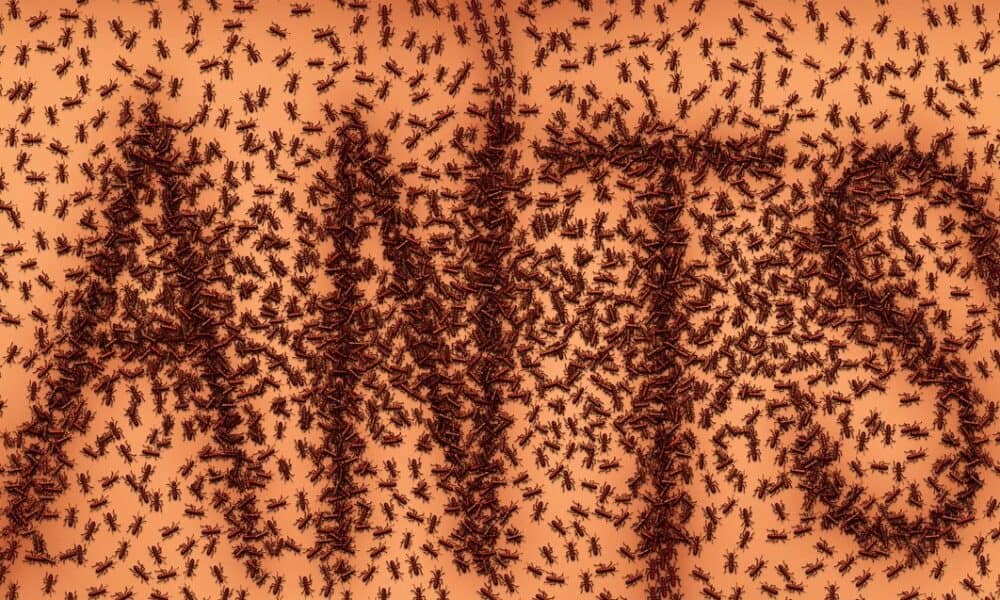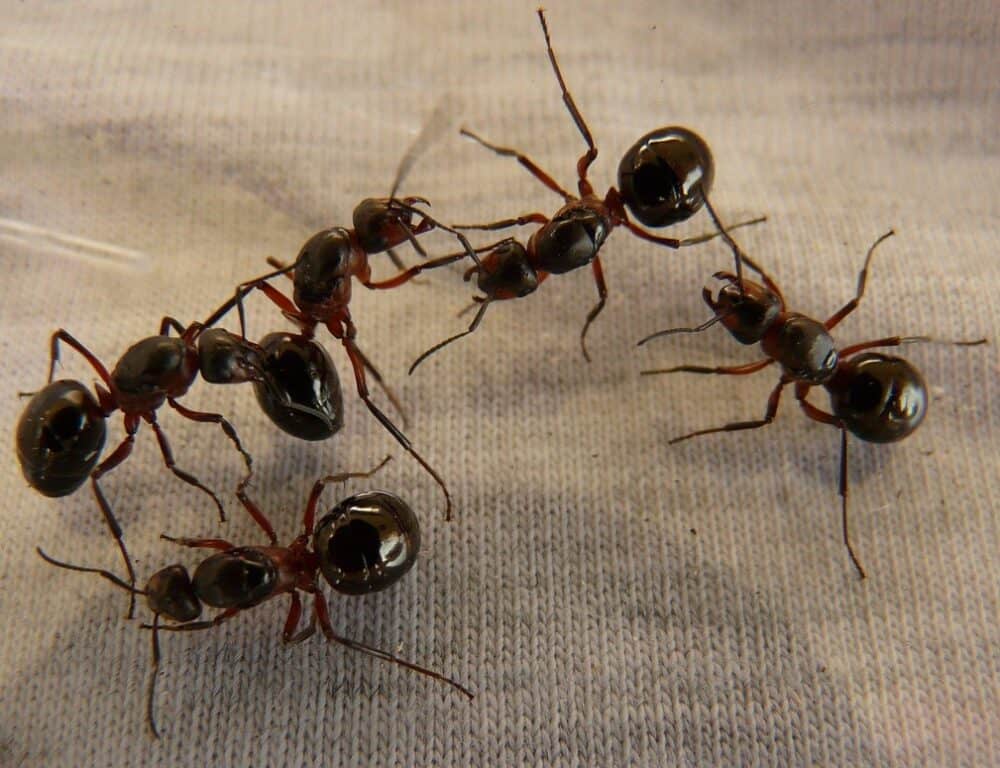How To Identify And Eliminate Common Ants Problems Effectively
Table of Contents
Ants are among the most common household pests. An infestation can start with just a few worker Ants and quickly evolve into a serious issue. If you see Ants in your home or garden, it’s essential to understand exactly what is the attraction, how to identify species, and the most effective control methods to eliminate and repel the Ants completely.
Signs of an Ant Infestation

One of the first steps in effective Ant control is recognizing the signs of an infestation. These include:
- Visible trails or pheromone trails
- Live Ants in the kitchen, pantry, or around your home
- Small piles of soil or wood shavings (possible Carpenter Ants)
- Ant nests or mounds in your yard or garden
- Rustling noises within walls (Carpenter Ants again)
If you notice these signs, it’s time to take immediate action to get rid of the pest.
Identifying Ant Species – Know Your Pest

There are over 30 species of Ants that commonly invade homes. Identifying the species is crucial because each type of Ant requires different pest control strategies. Here are some of the most common species:
- Carpenter Ants: Large black Ants that can damage wood structures.
- Odorous house Ants: Emit a rotten smell when crushed.
- Pharaoh Ants: Tiny yellow Ant, often found in hospitals and kitchens.
- Pavement Ants: Build nests under concrete and appear in driveways.
- Sugar Ants: Often found foraging near sweet food sources.
- Argentine Ant: Known for forming massive colonies.
- Red and Fire Ants: Can sting and are aggressive.
Learning how to identify the species allows for more precise control and helps eliminate Ants more efficiently.
What Attracts Ants to Your Home?
Ants are relentless foragers, and their invasion in the home often begins with a simple scent trail. When a scout Ant discovers food, whether it’s a crumb on the kitchen counter or a spill beneath the fridge, it releases pheromones that lead others directly to the source. This breadcrumb trail can quickly escalate from a few Ants to an entire colony swarming your space, making it crucial to understand not just what attracts them, but how to break their cycle of invasion.
Beyond food, Ants are also drawn to moisture. Leaky pipes, damp basements, or even a forgotten pet bowl can create an inviting environment for these tiny invaders. Interestingly, certain species prefer sugary substances while others are more attracted to protein or grease. This dietary preference means that if you have a diverse range of food sources in your home, you might inadvertently cater to various colonies. By recognizing these attractants and minimizing them, homeowners can effectively deter an Ant invasion before it spirals out of control.
Common attractants include:
- Crumbs or sugary spills
- Pet food and open garbage bins
- Moisture or leaky pipes
- Unsealed food storage
- Rotting wood or decaying organic matter
Once the Ants find food, they leave a pheromone trail so other Ats can follow, leading to a rapid invasion. Sealing entry points and removing food sources is key to pest prevention.
DIY Ant Solutions

When faced with an ant invasion in the home, many are quick to reach for chemical solutions, but nature offers effective alternatives that are both safe and eco-friendly. One surprisingly potent remedy is the use of essential oils, particularly peppermint and tea tree oil. A few drops mixed with water can create a powerful spray that not only disrupts Ant pheromone trails but also leaves a refreshing scent in your space. Spraying this mixture around entry points and suspected nests can deter the Ants from invading your home while adding a pleasant aroma to your environment.
Another intriguing method involves leveraging the power of diatomaceous earth, a fine powder made from fossilized algae. When sprinkled in areas where Ants frequent, it acts as a natural desiccant, dehydrating them without the use of harmful chemicals. This technique not only eliminates existing Ants but also serves as a barrier to prevent new ones from entering your home. Additionally, maintaining a clean kitchen free of food debris and sealing off entry points with natural substances like vinegar or citrus peels can significantly reduce the likelihood of an invasion, creating an environment they find unwelcoming. Embracing these natural strategies not only protects your home but also fosters a harmonious relationship with nature.
Natural Solutions to Eliminate and Repel:
- White vinegar spray: Destroys pheromone trails and deters Ants.
- Boric acid and sugar ant baits: A slow-acting poison that kills Ants and their colonies.
- Cinnamon, peppermint oil, or citrus peel: Natural Ant repellents.
- Sealing entry points: Prevents Ants from entering your home.
Using a DIY control strategy is a good first step, but it might not be enough for severe infestations or certain species of Ants.
When to Call for Professional Ant Control Services
Recognizing the signs of an Ant invasion in the home is crucial for timely intervention. If you notice a trail of ants marching across your kitchen counter or scurrying into your pantry, it’s not just a minor inconvenience — it’s a signal that they’ve established a colony nearby. Ignoring these early signs can lead to a full-blown infestation, making it more challenging to eradicate them later. Professional Ant control services can assess the situation and identify the species involved, allowing for targeted treatment strategies that DIY methods often overlook.
Timing is also key. If you find yourself battling ants repeatedly despite your best efforts with over-the-counter solutions, it might be time to call in the experts. They can provide insights into the Ant’s behavior and nesting habits, ensuring that not only are the visible Ants dealt with, but the source of the problem is eliminated as well. Furthermore, professionals use eco-friendly treatments that are safe for your family and pets, offering peace of mind during what can be a stressful situation. By acting quickly and enlisting professional help, you can reclaim your home from an invasion and prevent future occurrences.
If your DIY efforts aren’t enough, Professional Ant control experts can:
- Identify the specific Ant species
- Apply targeted treatments
- Locate and destroy nests
- Provide long-term pest control solutions
A professional Pest Control Service is especially important for carpenter or pharaoh Ants, which are hard to eliminate using standard methods.
Tips to Keep Ants Away for Good

To combat an ant invasion in the home, consider harnessing the power of natural deterrents that are both effective and environmentally friendly. Essential oils, such as peppermint or tea tree oil, can disrupt an ant’s pheromone trails, making it harder for them to navigate. Simply mix a few drops with water in a spray bottle and target entry points, creating a fragrant barrier that ants dislike. Additionally, sprinkling food-grade diatomaceous earth around your home can provide a physical barrier; it’s a non-toxic powder that damages the exoskeletons of ants upon contact, leading them to retreat.
Prevent future Ant infestations by following these tips:
- Clean up food spills and crumbs immediately
- Store food in airtight containers
- Repair leaky pipes and reduce indoor humidity
- Seal all cracks, crevices, and other entry points
- Keep tree branches and shrubs trimmed back from your home
These steps will help keep Ants away and protect your home from common household pests.
FAQ
Q: Why do Ants enter your home?
A: Ants enter your home in search of food and water. They’re attracted to sugary or greasy residues and will return repeatedly once they find a food source.
Q: How can I keep Ants away naturally?
A: You can use natural Ant repellents like vinegar, peppermint oil, or cinnamon, and ensure your home is clean and sealed from entry points.
Q: Are all Ants harmful?
A: While most Ants are harmless, carpenter Ants can damage wood structures and fire Ants can sting, making effective control essential.
Q: What’s the fastest way to get rid of ants?
A: Using ant baits with boric acid or hiring a professional pest control service is often the fastest way to get rid of ants.
Q: Do Ants live in nests indoors?
A: Yes. Ants can nest inside walls, under floors, or in other hidden areas, especially carpenter ants and pharaoh ants.
Conclusion
Ants are common, but you don’t have to live with them. From identifying Ant species to using the right repellent and baits, there are effective ways to eliminate and repel these Ants. If you’re struggling with an infestation, consider hiring a professional Pest Control expert to get rid of the pest permanently.



